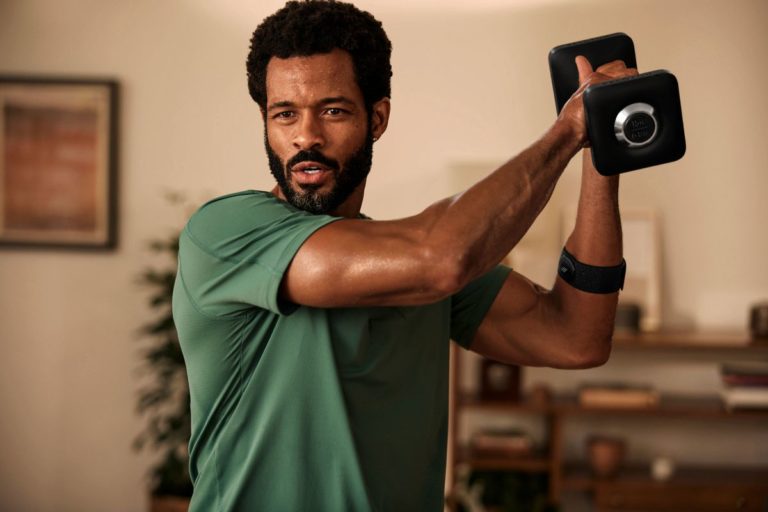From astrology to horoscopes and healing crystals to tarot cards, mysticism is on the rise. At the same time, these beliefs have become central to the wellness lifestyle. Now, New Age-inspired startups are proving to be big business, attracting millions of users and millions more in funding.
Is it all nonsense or a harmless form of escapism? And how did astrology become synonymous with wellness? Let’s take a look.
Something to believe in: Like the wellness industry itself, mysticism is incredibly nebulous. We’re not entirely sure what it is, how it works, or if it works at all. And despite the fact that science has debunked most of what falls under the New Age umbrella, people just can’t seem to get enough.
- In 2018, the mystical and psychic services market was valued at $2.2B.
- Nearly 40% of American women read their horoscope at least once a month.
- According to a Pew poll, 29% of Americans believe in astrology.
Look to the Stars
Narrowing our focus, astrology has been the standout hit of the mystical realm. Not to be confused with astronomy, a field of science devoted to celestial objects and phenomena, astrology is not science. Instead, it’s a cultural phenomenon that ascribes meaning to the placement of the sun, the moon, and the planets within 12 sections of the sky, giving us the signs of the zodiac.
What’s Your Sign?
Even if you’re not into astrology, you probably know your sun sign — Gemini, Cancer, Leo, etc. Sun signs are based on the position of the sun at birth and they’re commonly used to create daily horoscopes. But, there are also moon signs and ascendant signs said to represent different aspects of our personality.
Again, there’s no evidence correlating these signs with reality, but that’s kind of the point.
Astrology, like wellness, is in the eye of the beholder. Therefore, our belief in a particular practice can prove to be more important than its effectiveness. So, if wellness is a journey, astrology is a mythical Rosetta Stone. In this case, the planets and zodiac are the languages used to express life cycles, personality traits, and relationship patterns.
Infiltrating wellness. Going beyond physical health, wellness is the holistic integration of physical, mental, and spiritual well-being that encompasses the mind, body, and spirit. In recent years, as mind and spirit have played a more prominent role, astrology has found a home among wellness pursuits like yoga, mindfulness, sound bathing, and healing crystals.
Of course, it’s a little more complicated than that. The resurgence of astrology and its ability to infiltrate wellness is being driven by a number of factors, like burnout, spirituality, internet culture, and alternative medicine — many of which also help explain the broader wellness boom.
The burnout generation. As we’ve outlined in the past, anxiety, uncertainty, and loneliness are at an all-time high. Whether it’s tribal politics, too much tech, or climate change, we’re on the verge of a full-blown existential crisis. For some, meditation helps quiet the mind. For others, astrology is a tool for confronting chaos in the world.
Spiritual, not religious. Like wellness, younger generations have taken to astrology. The same demographics are also opting out of organized religion. According to a 2017 Pew poll, when asked about their religious affiliation, 29% of millennials identify as “spiritual, but not religious”, with 37% of all Americans reporting as religiously unaffiliated (atheist, agnostic, or “nothing in particular”). Instead, millennial heterodoxy is a combination of New Age mysticism and various wellness pursuits meant to fill the spiritual void.
Alternative medicine. As the line between healthcare and wellness continues to blur, we’re more likely than ever to seek alternative treatments to what ails us. From acupuncture, reiki, and mindfulness to cannabis and psychedelics, we’re so desperate for a cure that we’ll try anything once. And now, anything has expanded to include Ayurveda, homeopathy, energy medicine, and, of course, astrology.
The Internet. Wellness and astrology may go hand-in-hand, but the resurgence of sun signs was unlikely without the power of the internet. For starters, astrology memes are social media gold. And anything related to mercury retrograde, monthly horoscopes, or zodiac quizzes goes viral. It has spawned devoted online publications, massive social accounts, amateur astrologers, and flourishing communities that offer entertainment and validation for followers.
The Blueprint
Following in the footsteps of meditation apps like Calm and Headspace, a new wave of astrology startups are hoping to become the next wellness-adjacent unicorn. For context, Calm was valued at more than $1B as of its latest funding round. Meanwhile, Headspace has additionally raised some $75M to keep pace. Now, astrology apps like Sanctuary and Co–Star are trying to replicate their success. And venture capitalists think they might be onto something.
- Co–Star has raised a total of $6M for its “hyper-personalized, real-time horoscope” app.
- Sanctuary, a mystical products and services company, has raised $3.5M.
- The Pattern, a popular astrology app, went viral this summer thanks to Channing Tatum.
- Begin To Heal is like ClassPass for reiki, energy healing, spiritual coaching, and the like.
Looking Ahead
Is astrology the next frontier of wellness and startups? There’s no denying its popularity, but there’s no defending pseudoscience either. Still, if demand grows along with users and revenue, astrology apps will have no trouble finding starry-eyed investors.
Meanwhile, mystical services will continue to find a home in wellness. As we continue to climb Maslow’s Hierarchy in pursuit of meaning, connection, and transcendent experiences, astrology as wellness will be the answer some people are searching for.
Which begs the question, how long until we see the SoulCycle or The Wing of astrology? It can’t be far off now.



